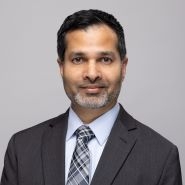Emerging Issues and Recent Developments in Artificial Intelligence and IP
Schedule :
Sponsor : Oblon IAM Lexology Webinar
Associated People
Oblon co-hosted this webinar, in conjunction with IAM and Lexology, titled "Emerging Issues and Recent Developments in Artificial Intelligence and IP." In this webinar, we discussed how a new wave of AI-based technology presents new challenges to existing IP law and to patent practitioners. Technology such as artificial intelligence chatbots are in the news for testing the limits on copyright law, but they also present challenges in patenting the underlying technical features. For instance, while previous forms of AI may be concerned with the underlying task of recognition, judgment, and output, new forms of AI may be concerned with those tasks plus also “passing as human.” We explored the pros and cons of claiming strategies directed to this aim.
We looked at challenges to Augmented Reality (AR) patents in view of recent litigation. For instance, the case of NantWorks LLC et al. v. Niantic Inc. that was litigated in the Northern District of California illustrated how features directed to AR solutions can end up being interpreted as non-patent eligible under 35 U.S.C. §101.
Additionally, we examined the potential impact of the Supreme Court review of Amgen Inc. v. Sanofi. Given the nature of AI technology, which may involve the use of functional limitations with an aim toward a broad scope of coverage, the impact of the Court’s decision on the threshold test for enablement on AI-related inventions may be significant.
We further discussed other emerging issues, such as the challenges in patenting AI chip technology and recent events affecting how AI-generated content is interpreted under copyright law.
We looked at challenges to Augmented Reality (AR) patents in view of recent litigation. For instance, the case of NantWorks LLC et al. v. Niantic Inc. that was litigated in the Northern District of California illustrated how features directed to AR solutions can end up being interpreted as non-patent eligible under 35 U.S.C. §101.
Additionally, we examined the potential impact of the Supreme Court review of Amgen Inc. v. Sanofi. Given the nature of AI technology, which may involve the use of functional limitations with an aim toward a broad scope of coverage, the impact of the Court’s decision on the threshold test for enablement on AI-related inventions may be significant.
We further discussed other emerging issues, such as the challenges in patenting AI chip technology and recent events affecting how AI-generated content is interpreted under copyright law.
This webinar was hosted by Sameer Gokhale.










 Counseling & Strategic Advice
Counseling & Strategic Advice IP Transactions
IP Transactions Litigation
Litigation PTAB Proceedings
PTAB Proceedings Start-Up
Start-Up Technology Transfer
Technology Transfer Trademark & Designs
Trademark & Designs U.S. Patent Procurement (Application Drafting & Prosecution)
U.S. Patent Procurement (Application Drafting & Prosecution)








